Data-Driven Pets with Technologized Petcare
PET TRENDS
The demand for new and improved pet care is skyrocketing, with pet owners becoming more dedicated to the welfare of their furry friends. In response, technology has emerged as a reliable partner, helping to ease the various responsibilities of comprehensive pet care.

How Technology and AI Are Transforming Pet Ownership
In recent years, a quiet revolution in pet care has taken place, powered by advancements in technology and AI. Pet owners are now equipped with tools and devices that significantly enhance the way they care for their furry companions. As Nextatlas data has found that this trend is growing continuously, it also represents a fundamental shift in how pet ownership is perceived and managed. While the love pet owners of today have for their animal companions can’t be measured, many other aspects of pet ownership now can be.

A view of the "Technologized Petcare" trend from the Nextatlas platform (screenshot taken in March 2025)
The Rise of Technologized Petcare
Pet owners are increasingly leveraging technological innovations to streamline and improve their pets' lives. This trend encompasses a variety of solutions, from automatic feeders and slow feeders that regulate eating habits, self-cleaning litterboxes to make your daily routine easier, to pet cameras with voice assistance that help alleviate separation anxiety. Wearable devices and activity trackers that monitor pets' activity levels, sleep patterns, and overall health metrics are also gaining popularity. These tools offer a detailed view of pets' well-being, going beyond mere convenience to genuinely enhance their quality of life.
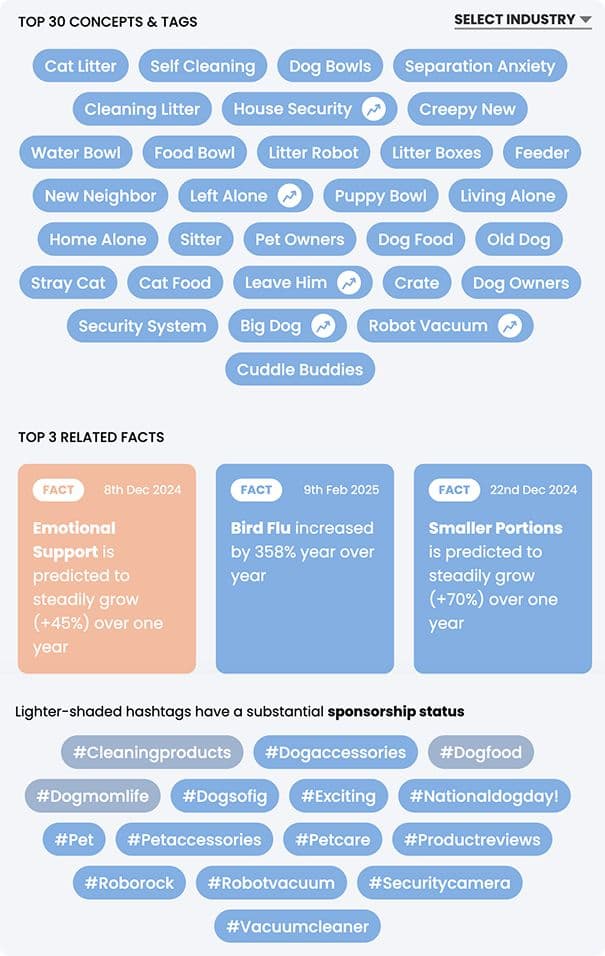
The top concepts, tags, facts and hashtags related to this trend from the Nextatlas platform (screenshot taken in March 2025)
Our analysis also found a significant surge in the implementation of health tracking strategies and metrics. Discreet wearables and activity trackers for pets are capturing consumer interest, aligning with human wellness trends. These tools allow pet owners to monitor their pets' activity, sleep, and overall health, such as the FitBark that can connect to Apple Watches to give dog owners real-time updates at a glance like a Fitbit.
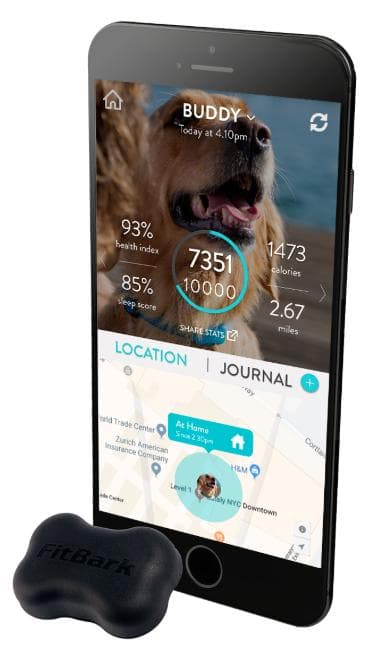
A view of the Fitbark app and collar device. Credit: fitbark.com
Tech-ing Care of their Hearts
But it's not just practicality; technology also touches the emotional side of pet ownership. With busy work schedules returning post-pandemic, pet separation anxiety is a growing concern. Pet cameras and monitors, often with voice assistance features, offer a lifeline for owners and pets, allowing interaction and reassurance, even from afar.
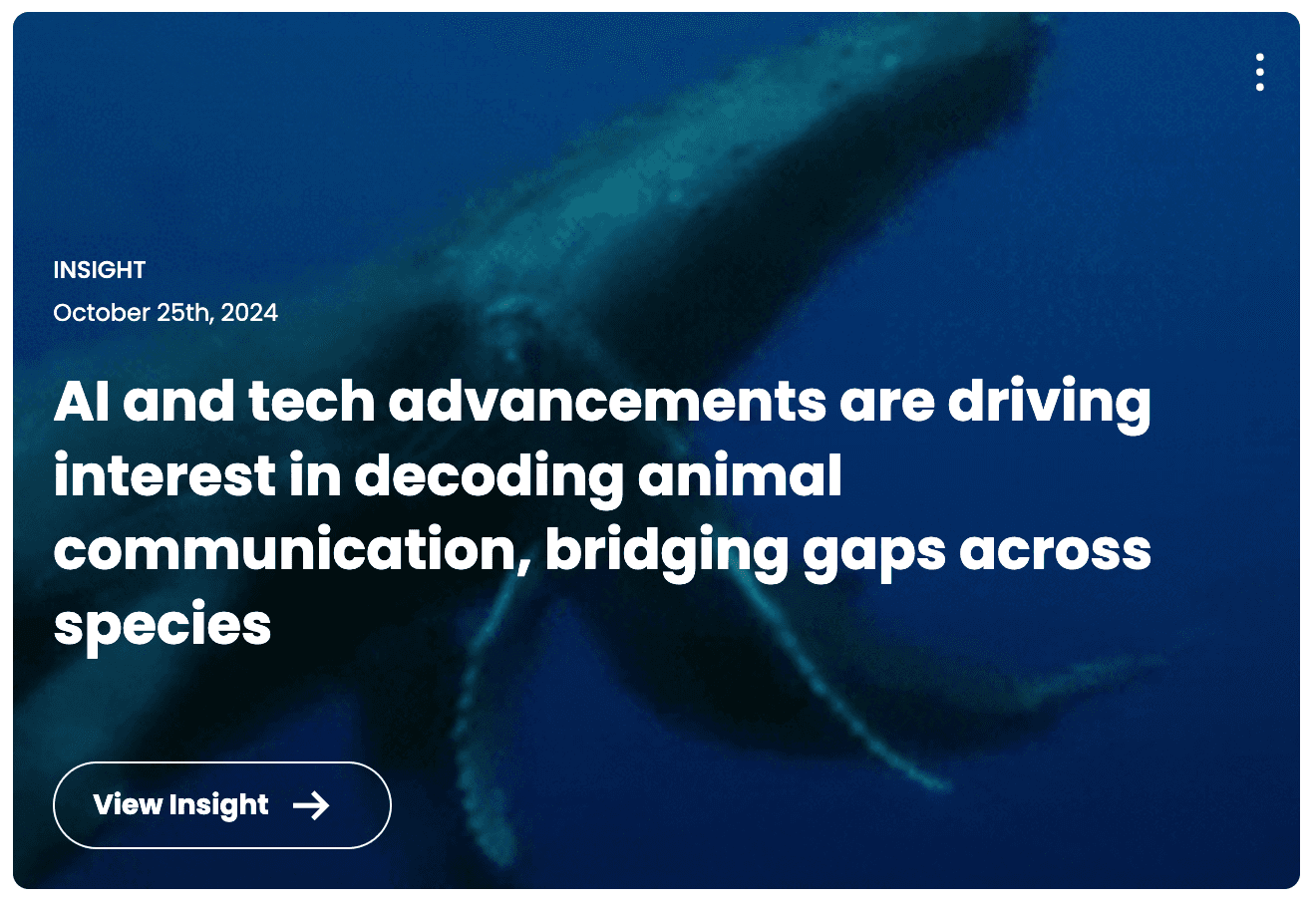
A view of a related insight on the Nextatlas platform (screenshot taken in March 2025)
Modern technology has allowed for innovations that combine all of these needs, practical and emotional alike, in one machine. The Furspark Big Eye Smart AI Pet Feeder was launched last summer, a cutting-edge pet feeding system streamlines and enhances the pet care routine through automated feeding, real-time interaction, and AI-driven insights. It offers customizable meal scheduling through its app, ensuring pets receive the right nutrition when owners are away. From its camera that monitors pets' activities through videos and pictures to the two-way communication system for owners to hear their pets and vice versa, this machine and its app is an example of the future of tech pet-care.
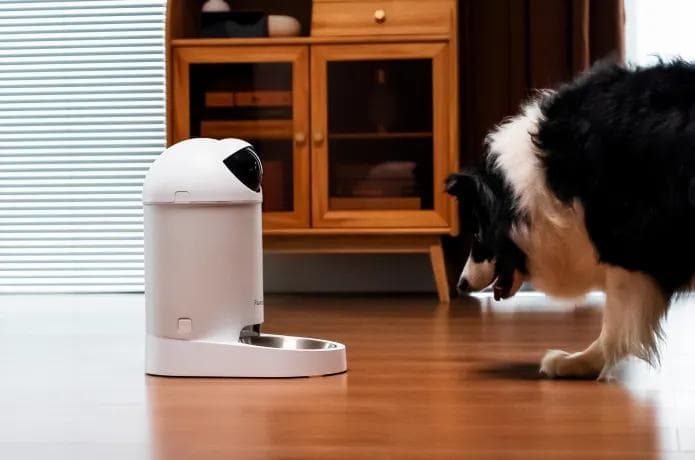
Credit: indiegogo.com
Generation Pet: Millennials and Gen Z Are Redefining the Pet Economy
The economic landscape of pet care will continue to evolve as more pet owners, notably Gen Z and Millennials, demonstrate a willingness to invest in high-tech solutions to improve their pets' lives.
As of 2024, Millennials represent 31% of pet owners in the U.S., while Gen Z accounts for 25%, making these younger generations the majority of American pet owners. According to research by Go Compare pet insurance, Gen Zs in the UK spend approximately £145 monthly on their pets, which is 30% higher than the national average of £112.

Credit: Getty Images
To accommodate this young cohort, businesses are evolving to meet the increasing demand for pet-specific products and services. Even companies who are not in the pet care sector are moving beyond merely accommodating pets to actively catering to their needs. Pet-centric designs in restaurants and retail spaces are gaining momentum, with even high-end restaurants like Gordon Ramsay’s Bar & Grill welcoming dogs. The focus is on creating inclusive environments, with dog-friendly cafes and pet dinner menus as some popular examples.
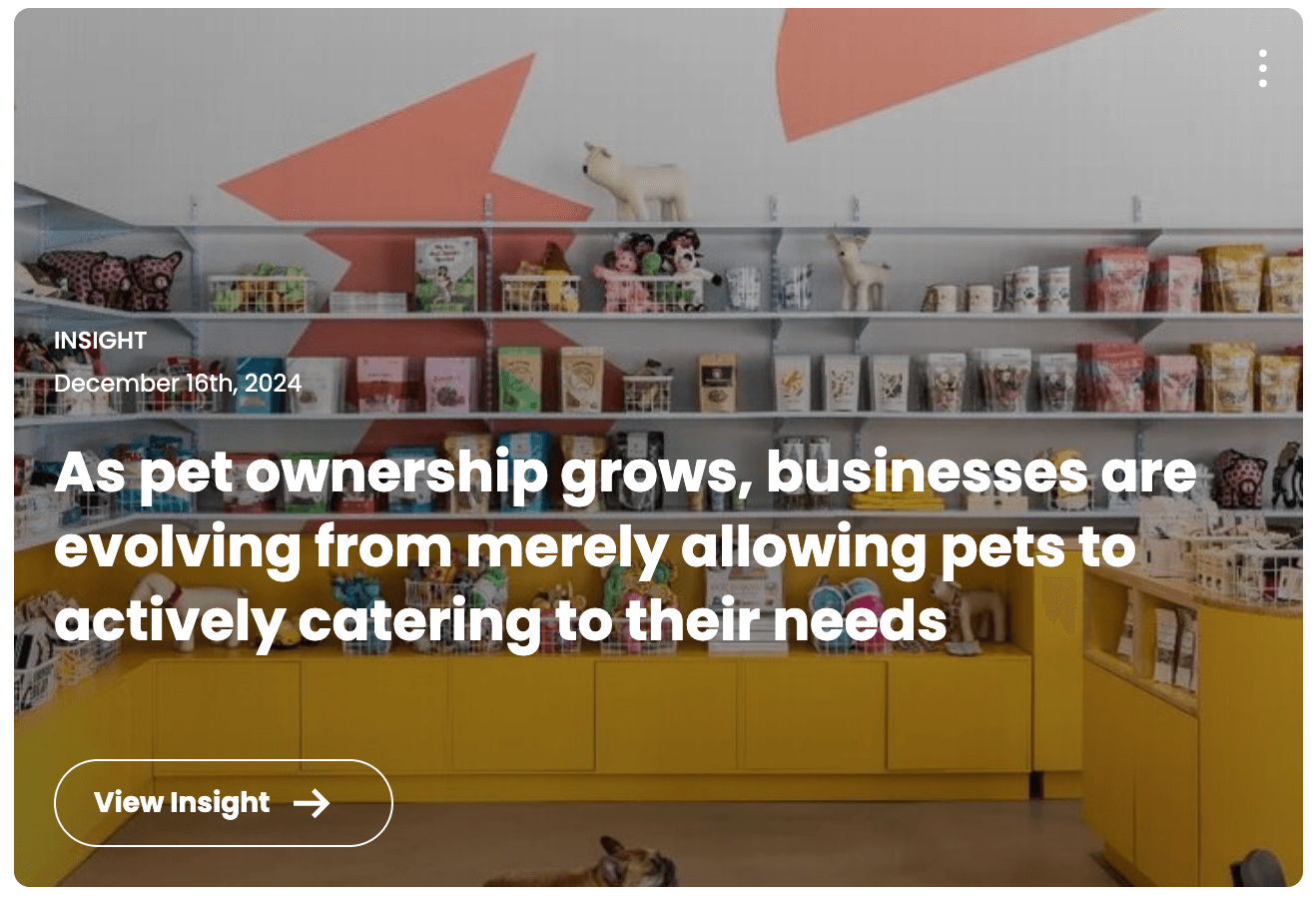
A view of a related insight from the Nextatlas platform (screenshot taken in March 2025)
Other Innovative Business Cases
Several groundbreaking business cases illustrate how companies are leveraging technology to enhance pet care:
- Pet Health Tracker & Reminder App: This app allows pet owners to monitor their pets' health metrics, set reminders for appointments and medication, and plan feeding schedules, training sessions, and exercise routines. It makes it easier to manage pet care comprehensively.
- Petivity: Proactive Pet Wellness Solutions: Petivity Smart Pet Care, powered by Purina, combines pet science with advanced technology. It includes products like smart litter box monitors and microbiome analysis kits, providing a proactive approach to pet wellness.
- My Buddy: AI-Powered Pet Health Tracker: By focusing on both physical and emotional well-being, this AI-powered tracker monitors weight, activity levels, nutrition, and mood, offering a holistic view of a pet's health.
- Pet.Buddy: AI-Powered Pet Care App: This app uses AI to provide personalized guidance for pet care, including expert advice on training, product recommendations, and overall pet health management based on individual behavior and preferences.
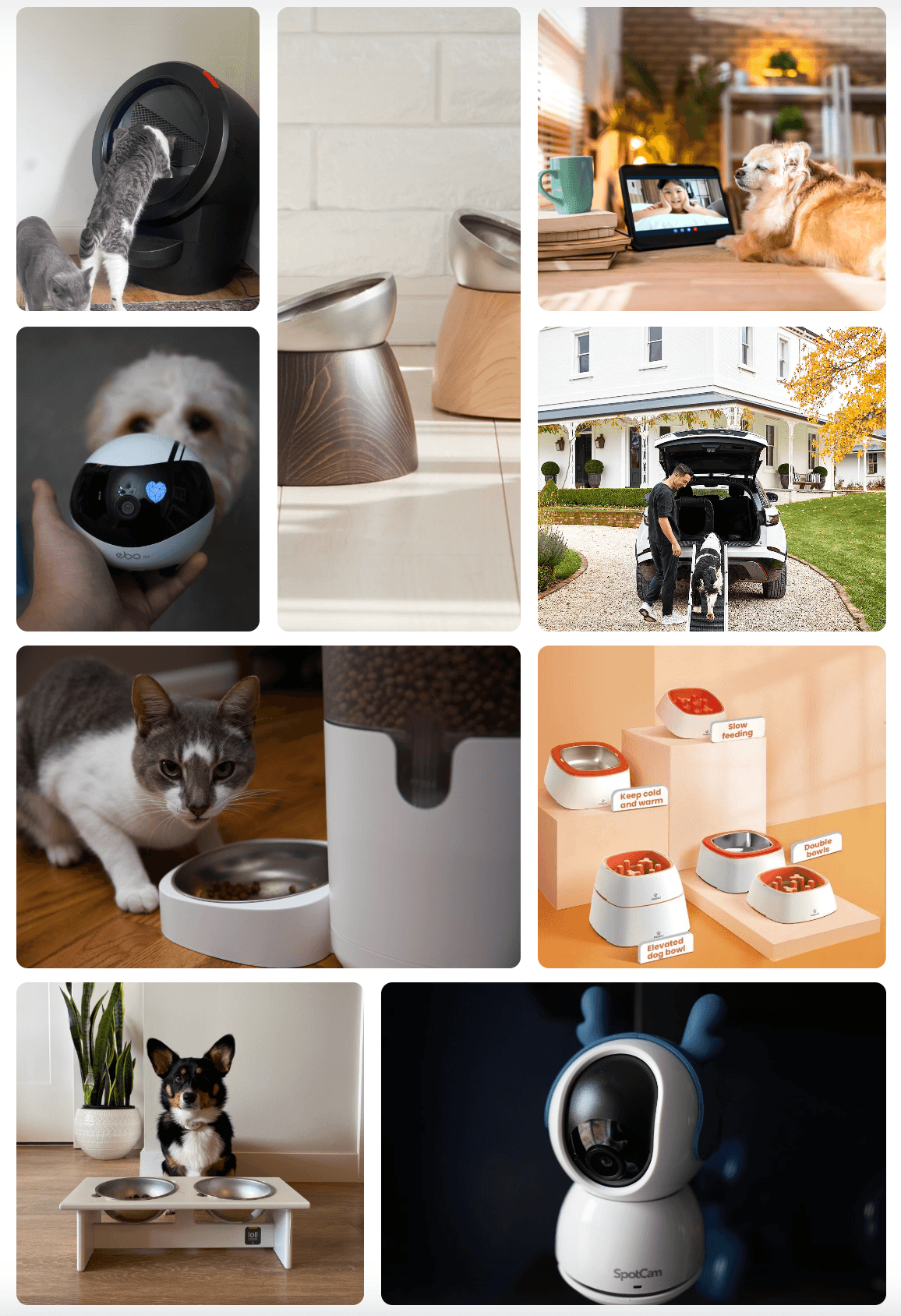
A moodboard related to this trend from the Nextatlas platform (screenshot taken in March 2025)
Tech-Powered Petcare is the Future
The rapid advancement of technology in pet care is a paradigm shift in how we nurture, monitor, and interact with our pets. As AI-driven innovations continue to integrate seamlessly into daily routines, pet ownership is evolving into a more connected and data-driven experience.
New technology not only offers convenience but also promotes better well-being for pets. With younger generations leading the charge in this transformation, the pet care industry will continue to expand, fostering new innovations that prioritize both functionality and emotional connection. As technology reshapes the way we care for our furry companions, one thing remains certain: the bond between pets and their owners is stronger than ever, and the future of pet care is smarter, more intuitive, and deeply personalized.
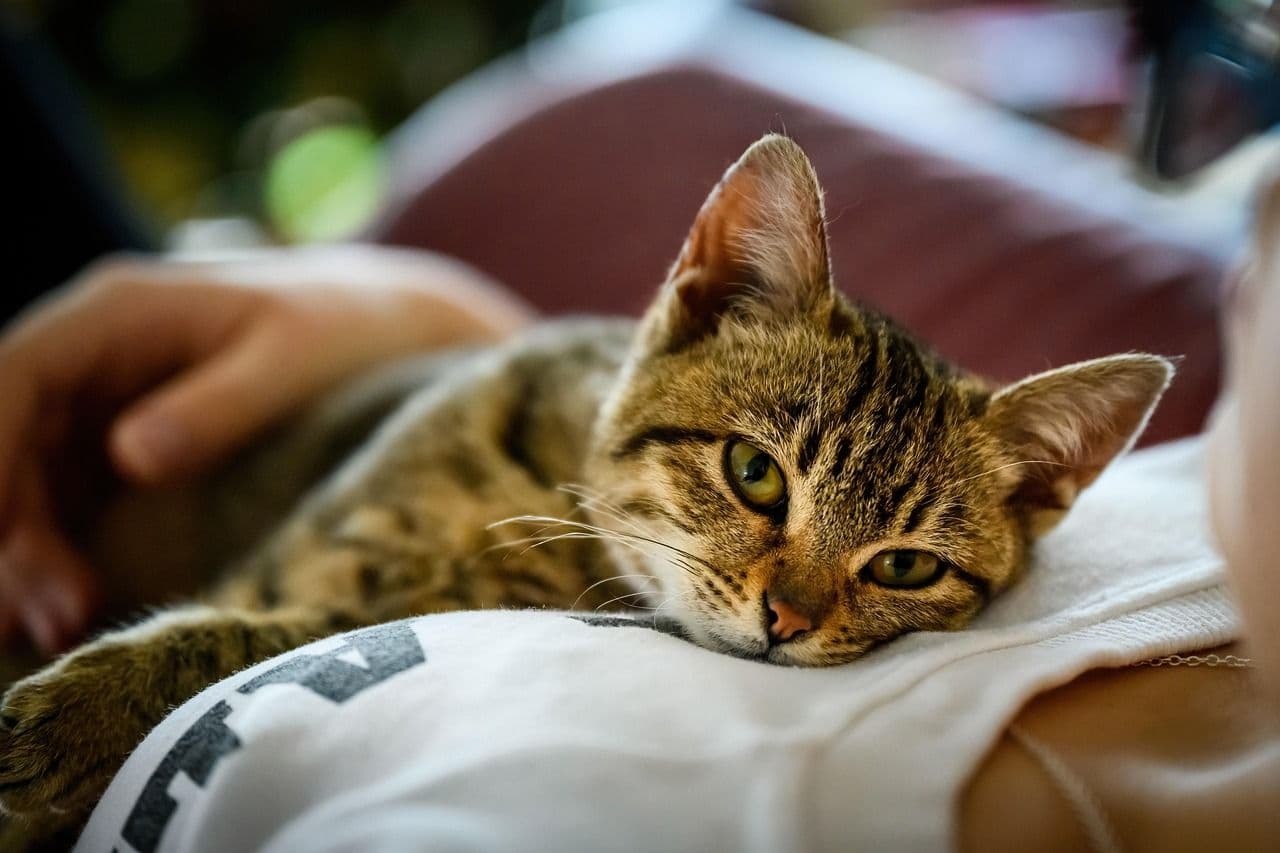

Trend lines, data, and information described in this article emerge from the ongoing analysis performed by Nextatlas on its global observation pool made of innovators, early adopters, industry insiders expressing their views on Twitter, Instagram, and Reddit.
To learn more about our AI, discover Nextatlas Methodology here
Related articles:

DESIGN & INTERIORS
Sheer Beauty: Ethereal Materials and Fluid Forms Meet Contemporary Living
Italy
Torino - Via Stampatori 4, 10122(Operational headquarter)+39 011/0864065VAT number and registration number at the Registro delle Imprese di Cagliari: 03428550929 paid share capital € 167.740,00 — © 2024 iCoolhunt SpA.


